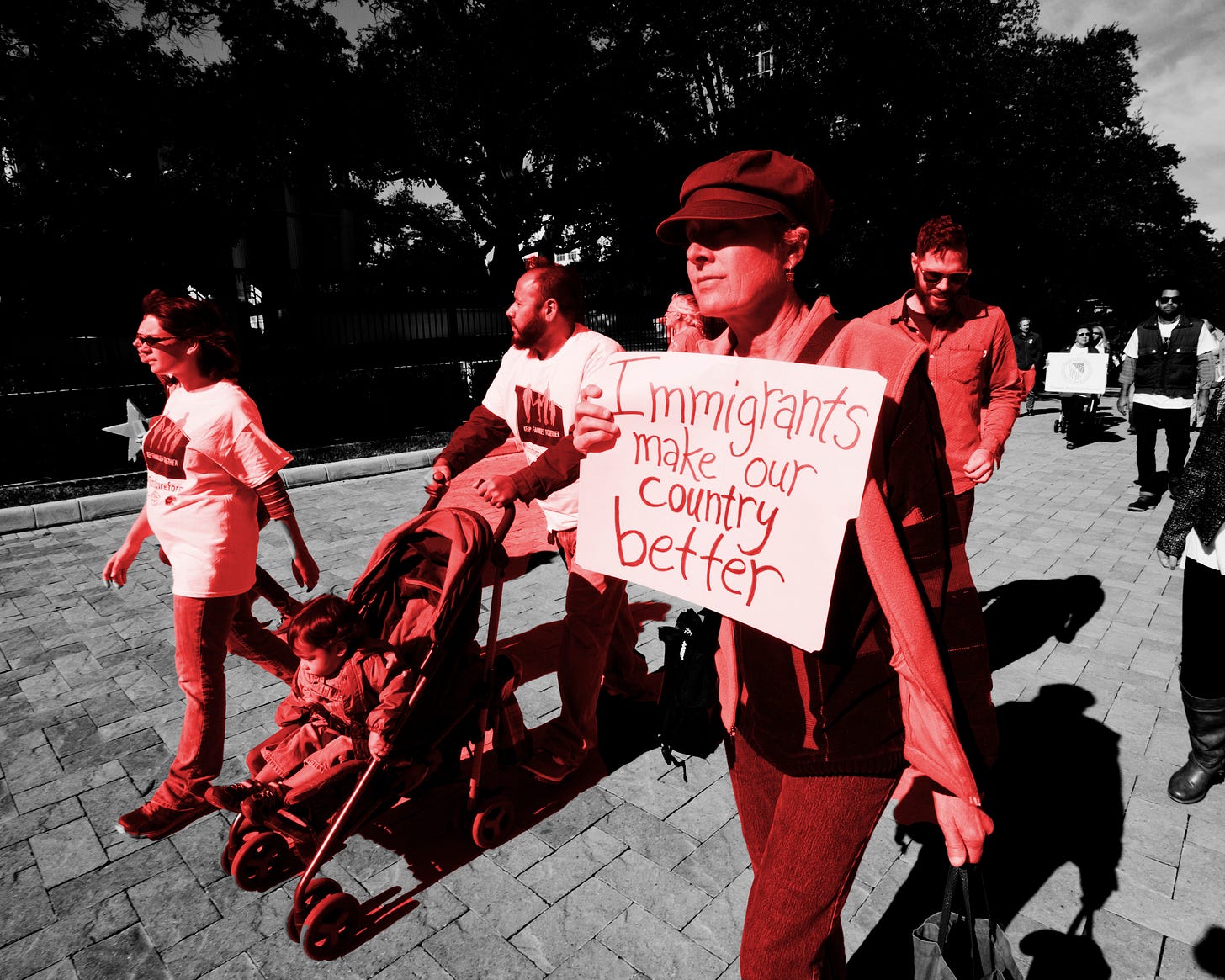Trump’s New Asylum Rules Don’t Make Us Safer or Stronger
While would-be asylees are shipped to Central America, the American economy misses their entrepreneurial spirit and productivity.

Good news: If you’re a Canadian seeking asylum in the United States, you have a chance.
If you come from anywhere else? Not so much.
Last week, the Trump administration began efforts to close the door to Mexican asylum seekers — the only nationality we weren’t already turning away at the southern border — by threatening to send them not back to Mexico, but to Guatemala or Honduras.
The Trump administration has been clear: Its changes to asylum policy are designed specifically to deter migrants from coming to our country. These policies do not make America safer or stronger. Instead, by forcing asylum seekers to remain in dangerous communities, these policies encourage violence, slow economic growth, and undermine the very idea of America.
As more asylum seekers are forced to wait in Mexican towns along the border, they become targets of criminal cartels who extort ransoms from their American relatives. According to Human Rights First, there have been more than 600 violent attacks against migrants sent back to Mexico by U.S. authorities since the Trump administration implemented its “Remain in Mexico” policy a year ago.
One Honduran father was kidnapped and tortured in front of his three-year-old son until his wife, who lives in New Jersey, paid $2,000. A 28-year-old mother and her 3-year-old son were abducted twice before a family member from Houston transferred $2,200 to their captors.
And that’s before recent reports indicated that the administration would begin deporting Mexican asylum seekers to Guatemala. After Guatemala’s president denied agreeing to accept Mexican migrants and Mexico expressed deep concern, the Department of Homeland Security announced that it would implement an asylum agreement with Honduras that could result in Mexicans (among others) being sent there.
Guatemala and Honduras are not safe places for asylum-seekers. Together with their neighbor El Salvador, these countries themselves are home to large numbers of people seeking asylum elsewhere. They remain impoverished and dangerous.
At the same time, the administration’s immigration policies are constraining our nation’s workforce and reducing tax revenue. In September, the administration cut the refugee ceiling to 18,000 from its 2019 ceiling of 30,000 -- a historic low even as 25.9 million refugees around the globe flee their homes. This fall, the administration published proposed rules that would restrict asylum seekers’ work authorizations, add new fees, and expand barriers to asylum seekers.
Texas governor Greg Abbott, joining the miserly spirit in Washington, has declined to resettle refugees in the Lone Star State. Even at a time of historically low state unemployment rates. That Abbott would turn away refugees with an entrepreneurial spirit isn’t just disheartening — for Texas, it’s bad business.
At the end of 2019, the Census Bureau reported that net international migration in the U.S. had dropped to its lowest level in a decade. Coupled with declining birth rates, America’s population is growing at its slowest pace in a century. Leading the global economy will become increasingly difficult if our nation cuts off the flow of immigrants ready and willing to contribute to our economy.
A shrinking labor pool is alarming both for the innovation economy and for towns across middle America that increasingly depend on refugees and asylees to fill jobs.
Trump’s refugee and asylum policy changes will rob us of more than border safety and economic growth: They also rob us of our standing on the world stage. America has always been a beacon for those fleeing persecution based on race, religion, nationality, membership of a particular social group, or political opinion.
These changes have in effect closed our doors to the persecuted.
As a result, the cartels prosper, and the American idea languishes.

